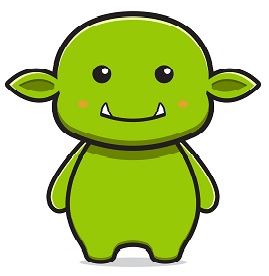I do. The is “el/la” and a is “un/una”.
In my dad’s language and my second language, it’s “the” and “a”
Yes.
English.
I’ve heard of that one. I think the is “the” and a is “a”.
I believe that “a” is either “a” or “an”; it depends.
Mandarin:
No “the,” you just say the noun and that’s it.
“A” or any other quantity of a noun is generalized as a number, followed by a character indicating quantity, followed by the noun. “An apple” is 一个苹果 (yi ge ping guo), 一 literally means one, 个 is the character that denotes quantity (it’s the most common one but some nouns have different quantity adjectives), 苹果 is apple. Two is an exception because there’s a special character for it that’s different from the number two (两个苹果 as opposed to 二个苹果), but every other number quantity is the same as the number itself.
russian, nope!
Funny story. I know an old Chinese man who has a stutter. When he starts a sentence he often repeats the the the the the before he gets going. It sounds like removed removed removed. So far no one has confronted him but I always worry it will happen some day.
A very bad word that we’re not even supposed to say on the internet, believe it or not.
Yes, we do.
“Il/lo/la/i/gli/le” instead of “the”, the precise article is chosen taking in consideration gender and plurality. We even have elliptic forms with " l’ ," for words starting with a vowel.
Then we have “un/uno/una” instead of “a”. Again elliptic form "un’ " for feminine words starting with a vowel.
Italian here 🤌
No (Korean), and it is what Korean people including myself often have trouble with.
In german we have der/die/das for the and ein/eine for a.
Don’t tell them about the noun cases though
And also completely unhinged declensions for them… Really, WTF Germany? 😭
No we don’t (Slovak)
In German we have three genders for words, neutral, female and male. These are spread around pretty randomly:
Die Tür / The Door is female Das Auto /The Car is neutral Der Bus /The Bus is male
We also have ‘ein’ which is the equivalent of “a” in english. Ein Auto / A Car.
The difference is the same as in german, one is specific, the other more general.
If you mean the definite form, then no, Polish doesn’t have it. Learning English as a kid was difficult because no teacher could explain it to me in an understandable way.
I’ve been learning a little Romanian lately though and it is there. Romanian is such a weird language. The vocabulary is like a mixture of five other languages, the grammar has gendered words and conjugations, yet it has a strict word order, unlike Polish that thanks to the complex grammar allows for very free reordering.
Yes, it’s “le/la” and “un/une” in French
No (Lithuanian)
hungarian.
- “the” is “a” or “az” (the word “that” is also “az”)
- “a” is “egy” (the word “one” is also “egy”)
i think this might be because articles are relatively new in the language.
No. (Finnish). I remember watching english speaking social media influencers Dave Cad (UK) and Chachi Gonzales (USA) who both moved to Finland saying that their english have gone worse through the years because they have begun to drop ”the” and ”a/an” in conversations just like many Finns do when they speak english.












